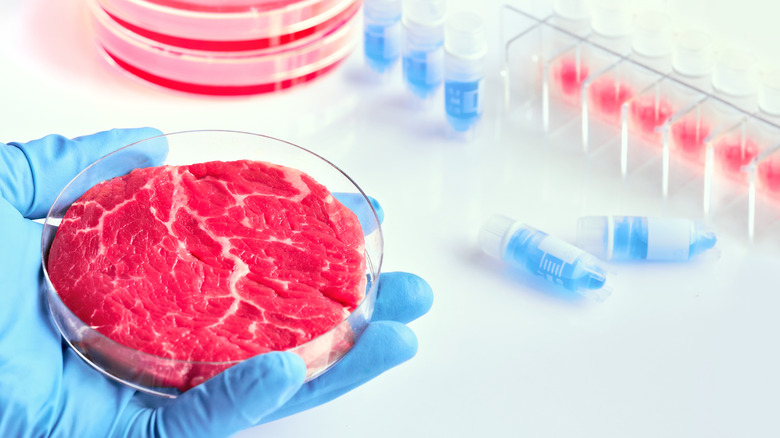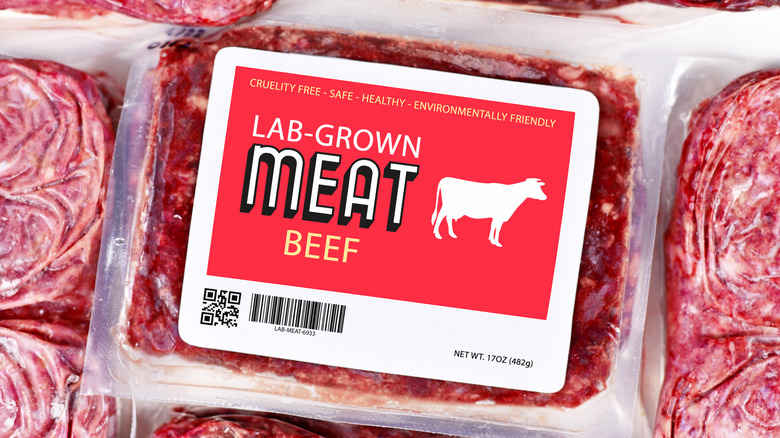How Lab-Grown Meat Could Be A Game Changer For Your Health And The Planet
Nearly ten years after the creation of the world's first lab-grown burger, food tech companies are finally gearing up to produce cultivated meat in commercial-scale facilities in the United States, reports CNN. While lab-grown meat has yet to be approved for sale by the U.S. Food and Drug Administration (FDA), cultivated meat companies like Good Meat and Upside Foods have submitted applications for FDA approval and are in the process of building bioreactors to mass-produce lab-grown chicken and beef (via The Guardian). According to experts, this will be a "game-changer" for the cultured meat industry, with bioreactors potentially producing up to 30 million pounds of lab-grown meat every year (per Gizmodo).
This could also have a positive impact on both human health and the environment. That's because industrial meat production is known to be harmful to the planet, Gizmodo reports. In fact, roughly 11% of greenhouse gas emissions in the U.S. come from the agricultural industry, nearly half of which come specifically from livestock. In addition, most of the greenhouse gases emitted are methane and nitrous oxide, which are actually more potent than carbon dioxide. Not to mention, there are a variety of other environmental costs from animal waste and industrial meat production, like water pollution, poor air quality, and the amount of farmland lost to feed livestock.
The potential health benefits of lab-grown meat
Lab-grown meat, however, could actually have the opposite effect (via CNN). Made directly from animal cells, cultivated meat is real meat grown in a laboratory. This means that no animals are slaughtered or harmed in the process. Lab-grown meat is also produced without the emission of greenhouse gases. According to Upside Foods CEO, Uma Valeti, that's because it's cultivated in a manner that is very similar to the production of beer, "but instead of growing yeast or microbes, we grow animal cells."
Lab-grown meat could also benefit public health by cutting down on antibiotic resistance and reducing E. coli outbreaks from contaminated meat. That's because cultivated meat doesn't contain antibiotics, which industrial farmers often use to prevent cows from getting sick. When humans eat meat raised with antibiotics on a continual basis, however, this can lead to antibiotic resistance, which can cause bacteria to become resistant to the treatment of antibiotics. Since cultivated meat is grown in a lab and away from other animals, it is also much less likely to carry harmful bacteria and viruses, which can be transmitted to humans. That being said, further research is still needed to better understand the "long-term health effects of cultured meat," according to the Academy of Nutrition and Dietetics.


